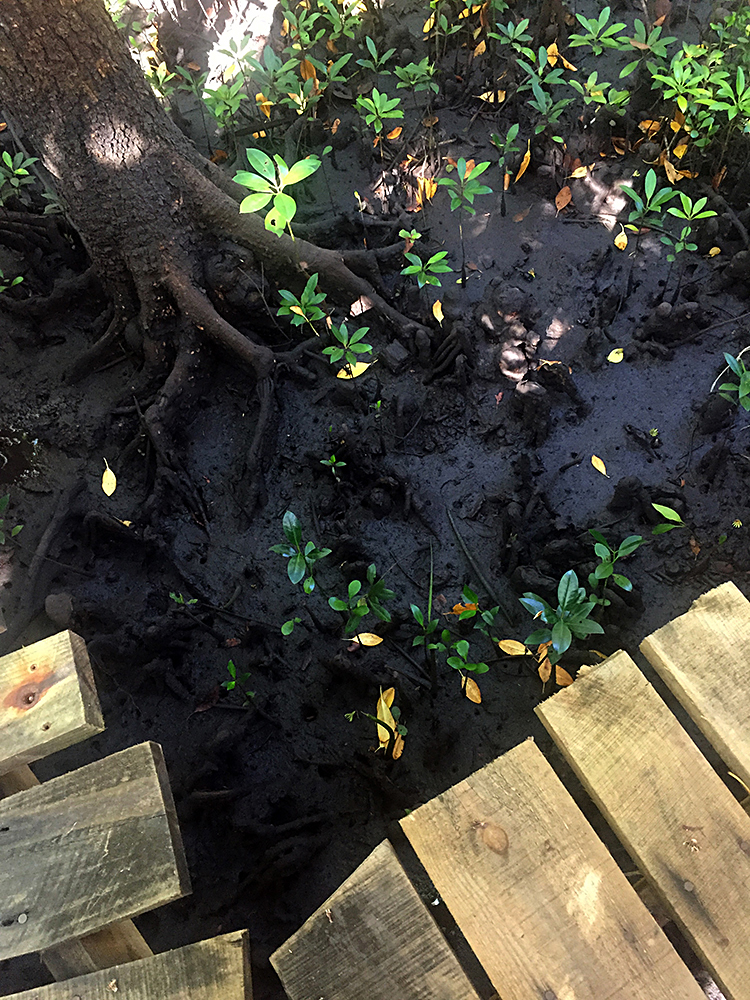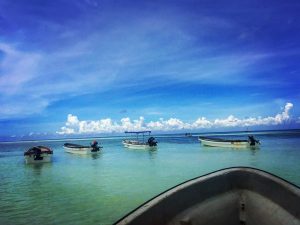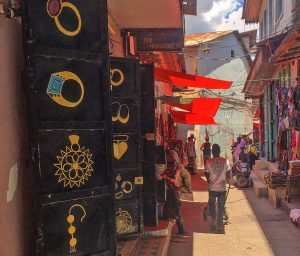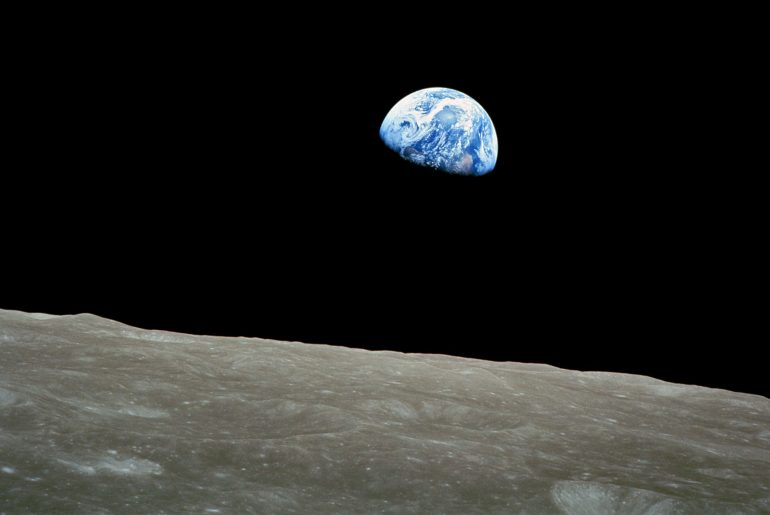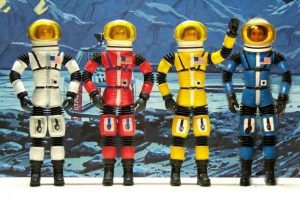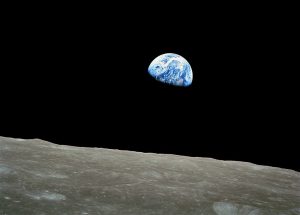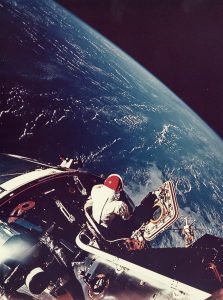Oh People!
The third show of No Way Out but Through is live!
A warning for the wary listener: everyone dies in this one.
Show 3: Matter
Imagine yourself in the middle of a world-destroying catastrophe. Now imagine that we have a short quiz for you. It won’t take but a minute. The world is a dusty, dark chaos, and the trap our unreliable narrator finds himself in gets more dire as the story goes on. Agents Angstrom and Kinski find themselves in a different kind of trap—and due to a lack of budget, and thus, vocal talent, poor Kinski doesn’t even get a speaking part. An announcement that the hit show Arena is returning to the air tonight to answer the question, “What Happens After We Die?” Then The Race is On—with apologies to George Jones, Tom Durkin, and Larry Collmus. And finally, a poem about life, the universe, and everything.42
Listen:
http://scott-taylor.buzzsprout.com
Matter
1.
Three Questions
One.
If, in the course of a world-destroying catastrophe,
you know a science fiction or science magazine type disaster—
an asteroid hits the earth, the sun is extinguished, a nuclear war
or climate change disaster makes the planet unlivable—that kind of thing—
anyway, if you could save hundred people,
not including yourself, who would be flown via rocket,
to another planet where they could survive,
which one hundred would you choose?
Two.
If you could, would you send some sort of monster to live there with them?
Three.
Exactly what kind of monster?
2.
If Nowhere has a Middle
The only washing machine in town sits on a corner by the remains of a gas station, which looks to have been abandoned at least two decades ago. It’s plugged into a light pole by the street. There’s a water spigot it’s hooked up to, and a drainage hose that runs a few feet and then dead ends in the parking lot.
It’s past midnight. The streetlight barely glows, its light constrained by a thick coating of dust on the glass. The next light is about a quarter mile down the road, barely as bright as a minor star.
The wind picks up. A small twister forms in the parking lot, spinning bits of trash up into the air. As I dump my clothes from a canvas bag into the machine, a car pulls up and parks between the pump island and what used to be the front door.
Three young men get out. They leave the doors open and light each other’s cigarettes. There’s music playing but I can’t make anything out about it. They don’t pay me any mind. They just lean against the car and smoke.
A couple walks by on the opposite side of the street—European travelers with impressive backpacks. They stop and illuminate their map with a powerful flashlight. They look up. They look around. They point. They fold the map into a perfect rectangle, and continue on in the same direction.
I start the machine and lean against it as the tank fills. I don’t bother with the temperature control—all the water here is warm.
The wind picks up even more. Dust is suddenly everywhere. I should have waited until tomorrow. My eyes burn. My mouth is dry with dust..
The men get inside the car. They close the doors rigorously but I do not hear the sound it makes. Breathing is unpleasant. I can’t swallow. I get a little too caught up in imagining my death by suffocation.
There’s a phone booth at the edge of the parking lot. I hold my breath and make my way toward it. Getting the door to even budge is difficult. I rattle it around and it finally loosens. I jerk it open, and close it hard behind me. I take a short exploratory breath.
Another car pulls up. The windows of both cars roll down. They talk briefly. They exchange . . . something. The first car leaves.
The phone book is long gone. The cable it once hung from is all that’s left. The receiver is dangling, so I hang it up. Old candy wrappers and flattened cigarette butts paper the floor. Some pale, yellow weeds grow through a crack where the booth is attached to a cement block. I’m protected from the wind, but I am also trapped inside while it blows.
I can barely see anything outside. There’s dust in the booth now. Trash is blown and pinned against the glass. The booth creaks. It seems like it should hold, given how it’s bolted to the block but I’m not totally convinced.
There’s a big strong loud prolonged gust, and the lights go out. Larger objects start striking the booth, branches and boards. The world is a swirling dusty dark chaos.
Then it lets up and everything is silent like I’ve gone deaf.
Then I hear the car start and drive off. I hear it drive down the road. I hear it for a very very long time. If nowhere can be said to have a middle, then that is where I am.
I consider grabbing my wet clothes, and making a run for it but I’m not convinced I could find my way in the dust and the dark. I slump against the side of the booth, unwilling to leave, unable to decide anything.
Now I see the headlights of five, maybe six, cars pull into the lot. A bunch of doors burst open. I hear voices. Some yelling. There seem to be two factions. I can make out the legs of many men silhouetted by the headlights of the cars.
I am hoping they leave before they notice me, but the phone rings. It’s loud. It’s shrill. It’s the only noise in the entire world. I pull the receiver off to stop the ringing. A man says, Stay right where you are. We are on our way. Outside, the men from the cars have stopped arguing. One of the cars backs up, so its headlights are pointed my way. Every single one of them sees me now. They pull out their guns and begin moving toward the phone booth.
3.
Road Block
one
The Coast Highway. 9:30 pm.
Agent Kinski is unconscious and needs help.
We were traveling down 101, as planned. However, there was an unexpected road block about a quarter mile from the epicenter. There are plenty of falling rocks and washouts on this road this time of year but there was no mention on the road report that had been generated just thirty minutes before. The structure looked far more formidable than necessary, for even a washout.
We got out of the car. The air felt thick. It smelled of ozone . . . of something floral, something sweet. . . It smelled of decay.
From a distance the structure looked legitimate. However, the closer we got to it, the more bizarre it became. We saw what looked like a cargo cult version of a falling rocks sign, like it was copied without knowing its purpose.
The structure itself, while imposing, didn’t look heavy. It didn’t look like it was made of metal. It wasn’t smooth. It looked organic. It looked like it was made of . . . some sort of black coral.
Agent Kinski went in closer to investigate. She pushed on it to see if it would move. She thought that maybe we could just move it out of the way. It gave a little where she pushed. Then she backed away. She said, “it’s already too late,” then collapsed.
Her hand was red and purple, like it was bruised and inflamed. She was delirious for a few moments before going totally unconscious. I moved her to the car, careful to avoid her hand. She’s breathing but needs help. Ten miles back from here, there’s a spot where a copter could land. I’ll try to make it there. Be ready to evacuate Kinski.
two
I hope you’re receiving this because we are trapped. Another structure, identical to the first one, is now blocking the road a quarter mile back—where there was nothing fifteen minutes ago. Kinski is not well. Her breathing is shallow. She’s making noises in her sleep—like she’s speaking in tongues.
I doubt my gun is of any use at all. The flamethrower will not do much in the rain. I don’t want to use the explosives unless I have to. My next move is to see if I can drive the car straight through it.
three
Send reinforcements now. We are careening down the hill. The road is washed out. We are in a mudslide. It looks like we are on some sort of bobsled run, maybe it’s some sort of lumber thing. It’s totally black at the bottom, like there’s a big hole or no wait . . . there’s something there. . .
4.
Arena Promo
Coming up later tonight,
the hit show Arena
triumphantly returns to the air
to answer the question:
What Happens After We Die?
On tonight’s show,
teams representing Christianity,
Islam, and Buddhism
will square off in the Arena
with Medieval weaponry,
the winners gaining
the right to decide . . .
What Happens After We Die
Find out the answer
to this age-old question,
tonight at nine.
5.
The Race is On
(after George Jones, with inspiration from Tom Durkin and Larry Collmus)
And through the iron gates, they’re off—
Getting out fast is Healthy Child followed by Doctor’s Orders
then, running together, it’s Confused Parent and AntiVax
it’s Healthy Child and Doctor’s Orders
but AntiVax and Confused Parent are making a move,
Doctor’s Orders is falling off the pace
here comes AntiVax
with Confused Parent along for the ride.
and now Measles Outbreak is moving along the rail
Doctor’s Orders is completely out of the picture
it’s AntiVax, Confused Parent, and Measles Outbreak
followed by High Temperature and Nasty Rash
and coming up on the outside, It’s Nothing to be Done,
Tiny Casket, and Devastated Parents
Now at the first curve, High School Jock
and Glory Days are running together
it’s High School Jock, Glory Days,
and here comes College Team
it’s High School Jock and Living the Dream
oh but College Team is applying the heat,
Glory Days are gone for good,
High School Jock is falling back
now its Softball Team and Middle School Coach,
with Lumber Mill just two lengths back
It’s Softball Team, Middle School Coach, and Lumber Mill
along the rail, here comes Jack Daniels,
Drunken Brawl, and Night in Jail,
Middle School Coach is nowhere to be seen,
and now, Lumber Mill has dropped completely off the pace,
coming on strong, it’s Recruitment, Army, and Basic Training,
it’s Military Exercise, and now Friendly Fire,
followed by Devastated Family,
Too Many Questions,
Closed Casket,
and Folded Flag.
Music Prodigy is making her move,
it’s Young Artist, Recognition, and College Scholarships,
and here comes Big City and Big Time Tryouts,
it’s Practice, Practice, Practice,
it’s Audition, It’s Passion, and here comes Failure,
Audition and Failure are running neck and neck,
Passion is dropping off the pace,
it’s Practice, followed by No Longer Fun,
Music Prodigy is in a tight spot,
and here comes Depression and Too Much to Drink,
it’s Failure, it’s Pressure,
it’s Depression and Too Much to Drink
it’s Big City, it’s Rooftop,
it’s Ah, Might as Well Jump.
it’s Stunned Friends, Disappointed Family,
and Closed Casket.
Now on the back stretch,
Happily Married is leading along the rail
followed by Is This All There Is
Stuck in the Middle with You is three lengths back
it’s still Happily Married, Is This All There Is,
and here comes Late Night at Work,
now Attractive Secretary is making her move,
is This All There Is has moved in front of Happily Married,
Attractive Secretary is looking good,
it’s Late Night at Work, How About a Nightcap,
it’s Instant Fires, and then Drunken Evening,
Happily Married has fallen off the pace,
It’s Attractive Secretary
and now Red Camaro is coming on hard,
it’s Drunken Evening, and now Bachelor Pad,
Attractive Secretary Is falling back,
it’s Late to Work, Utter Chaos, and Too Much to Drink,
And here comes Untimely Dismissal, and Divorce Papers,
Attractive Secretary is nowhere to be seen,
it’s Too Much to Drink,
And now pulling ahead on the outside,
it’s Fatal Accident,
Devastated Family,
and Uncomfortable Funeral.
Now finally making its move, it’s Late Bloomer,
followed by Lifelong Masterpiece, it’s Late Bloomer
really picking up the pace, then Lifelong Masterpiece,
and Encouraging Feedback,
It’s Late Bloomer and here comes,
Multiple Publications along the rail,
things are looking up for Late Bloomer but wait,
here comes Hard to Concentrate, and Doctor’s Appointment,
with Multiple Tests running just behind,
Lifelong Masterpiece is dropping off the pace,
it’s Test Results, Bad News, and Oncology,
Lifelong Masterpiece is completely out of the picture,
Late Bloomer is really falling back,
it’s No Energy, and Disbelief,
it’s Denial and Regret,
It’s Unfinished Masterpiece,
Time’s Wingèd Chariot is hurrying near,
It’s Death of Ivan Ilyich,
Too Little Too Late,
Late Bloomer is done.
Now it’s Old Maid at the rail,
Living Alone is on the outside,
Estranged Family is a half-length back,
here comes Missing Medicaid Check,
No Insurance, and Low Funds,
followed by No Heat,
and now Heart Problems is nipping at her heels,
it’s No Insurance, it’s Heart Problems
it’s Lonely Lonely Death,
it’s Long Week, and Neighbor Complaint,
Then Fire Department and Terrible Odor,
it’s Sad Hungry Pomeranian,
Closed Casket,
And Ill-Attended Funeral
And into the homestretch they come,
it’s Early Death, Late Death, and Unexpected Death,
it’s a Crushing Death,
a Shooting Death, an Instant Death,
it’s a Death that’s been a Long Time Coming,
It’s Homicide, Genocide, and Suicide
it’s Self-Immolation, and Collateral Damage,
And it’s the Big Sleep, Bit the Dust, and Bought the Farm,
it’s Cashed in his Chips, Come to Rest,
and Crossed the Great Divide,
“It’s Departed, Defunct, and Ceased to Be,
It’s Rung Down the Curtain
and joined the Choir Invisible”
(Monty Python, Dead Parrot Sketch)
It’s Giving Up the Ghost,
Left the Building,
Met his Maker,
and Kicked the Bucket,
it’s a Permanent Vacation,
Put to Bed with a Shovel,
and Pushing Up the Daisies,
it’s Six Feet Under,
Snuffed Out,
and finally,
Shuffled off this Mortal Coil
6.
Matter
At some point, somehow,
almost impossibly,
the universe begins
and, for a while, exists,
then, at some point, dies,
but along the way,
luckily, amazingly, somehow,
who could say why,
in local instances anyway,
things begin to attract weight,
things begin to matter
SFX Credit Attribution:
Horses Racetrack, Montevideo, Uru provided by sounddogs/ Pond5
Horse Racing Crowd Cheering At End Of Flat Race provided by soundsvisual/Pond5
Race Track Crowd, Gates Open provided by ProSoundEffects/Pond5
Horse Race Meeting Crowd provided by jfxsound/Pond5
War Drums provided by jmac713/Pond5
Wind Desert Sand provided by clacksfx/Pond5
Rain hitting roof provided by quietswede/Pond5

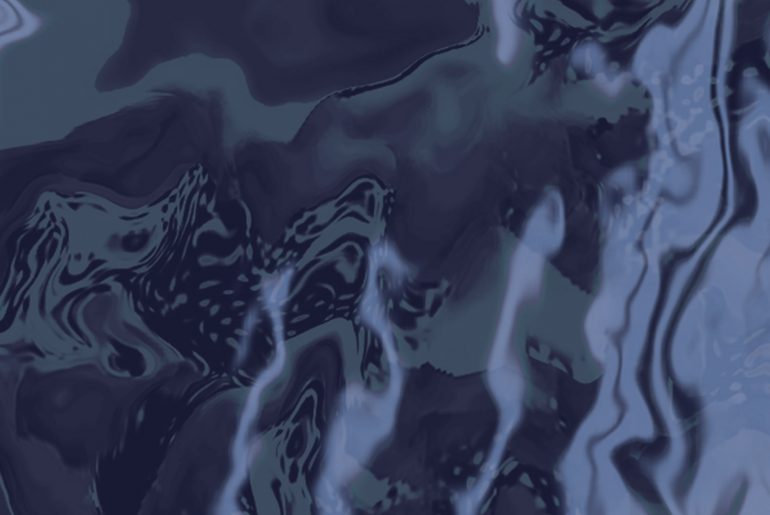
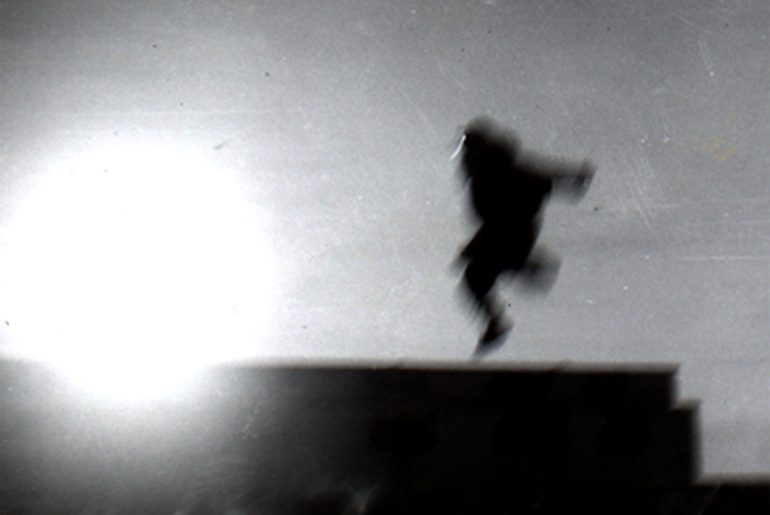
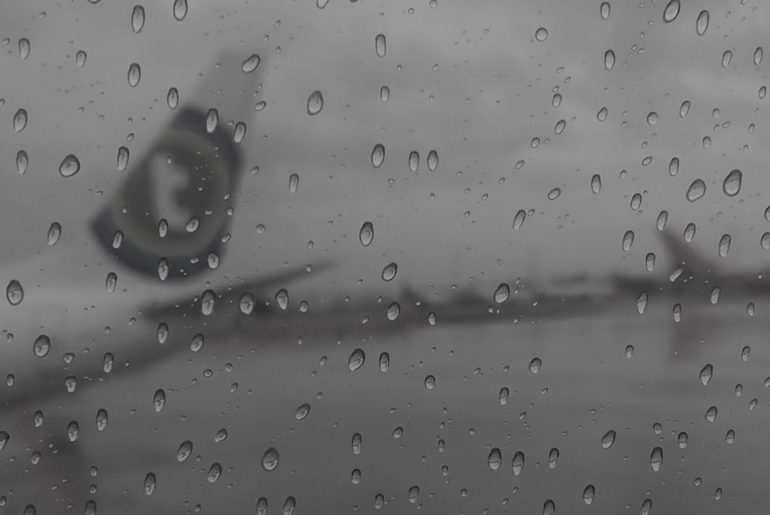
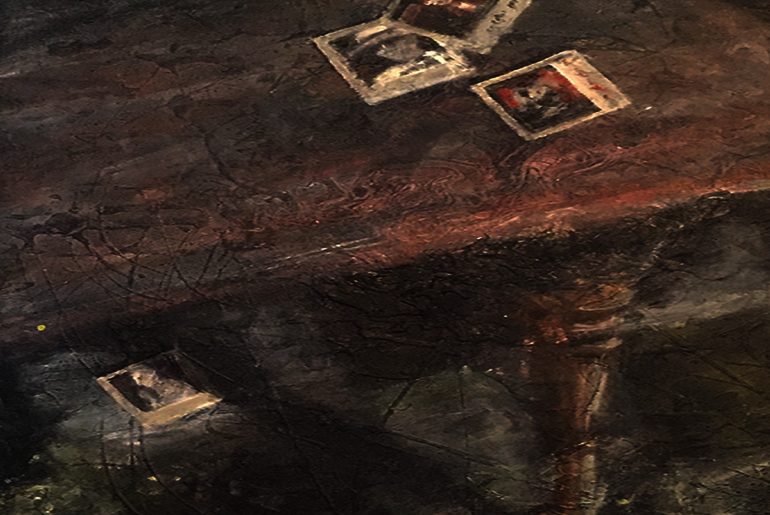


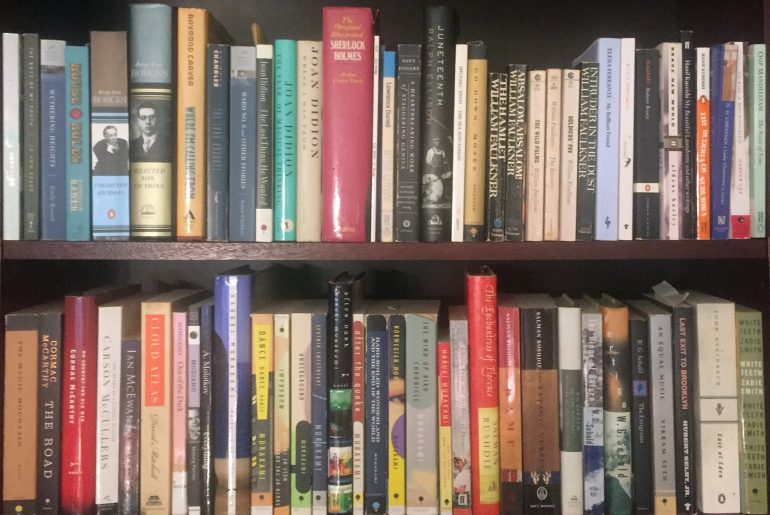

 Maria Popova’s love of literature, of books, of physical books, is palpable. A post on her Brain Pickings site will usually focus a single book. She interacts with it, gives her own impressions, and lets us know what books, articles, essays, stories, it reminds her of. She brings in other writers to elucidate and complement the topic. A post will usually include up to 10 links to other subjects she’s written on, all potential rabbit holes of reading. I find it hard to keep up with her impressive output.
Maria Popova’s love of literature, of books, of physical books, is palpable. A post on her Brain Pickings site will usually focus a single book. She interacts with it, gives her own impressions, and lets us know what books, articles, essays, stories, it reminds her of. She brings in other writers to elucidate and complement the topic. A post will usually include up to 10 links to other subjects she’s written on, all potential rabbit holes of reading. I find it hard to keep up with her impressive output.
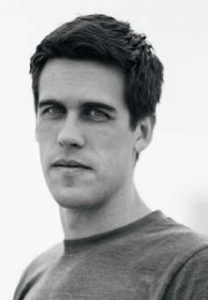 Ryan Holiday is a voracious reader. Part of the success of his books—in particular,
Ryan Holiday is a voracious reader. Part of the success of his books—in particular, 
 Tim Ferriss
Tim Ferriss
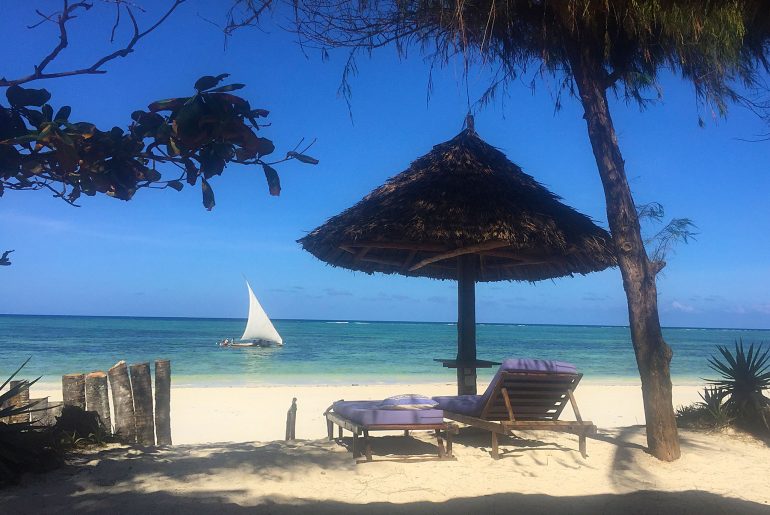
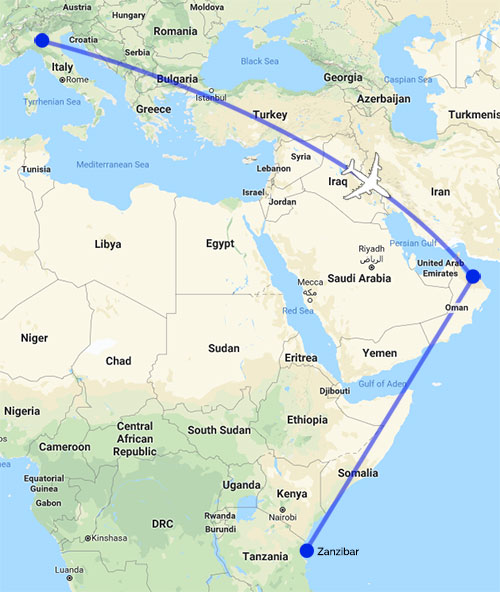

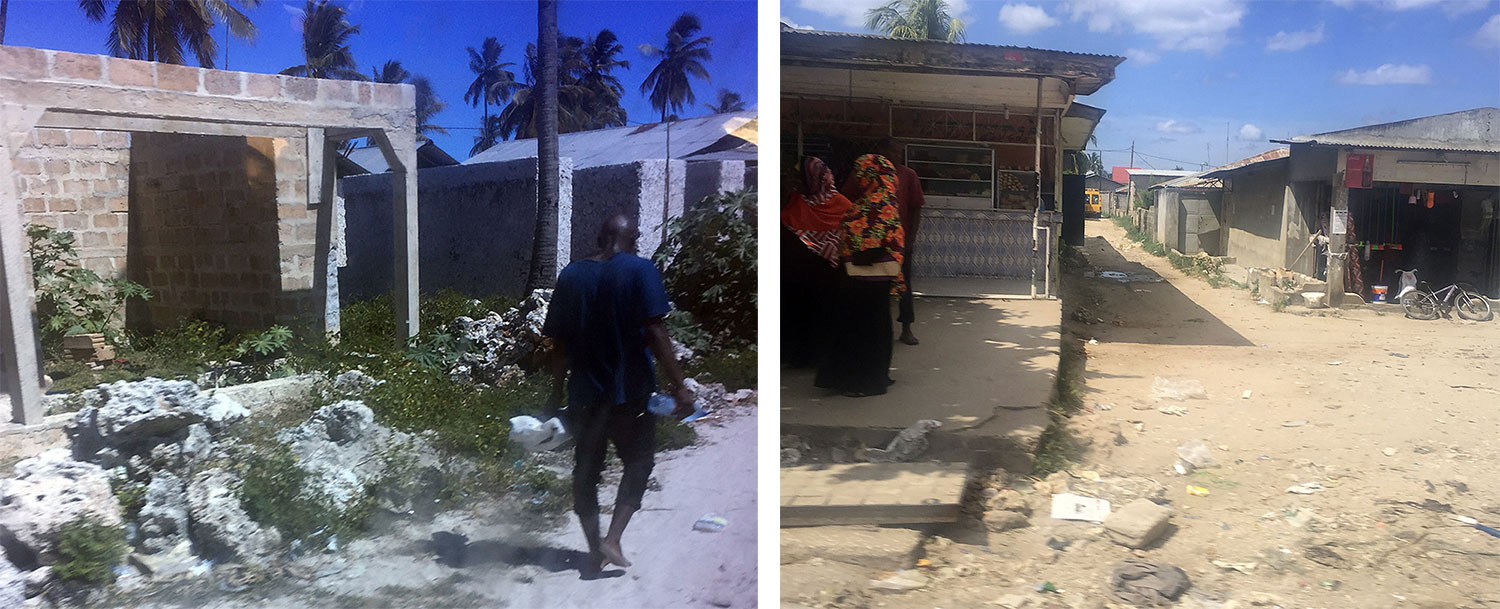
 The driver honks and the gate to the resort is opened. The resort is perfect—immaculate, beautiful, a postcard to be snapped in every direction—a juxtaposition to what we’ve seen so far. We meet the owner, a genial German, and his girlfriend, a warm and friendly Zanzibari. Aside from guests, she and their daughters are the only females we will see at the resort. Everything is done by men.
The driver honks and the gate to the resort is opened. The resort is perfect—immaculate, beautiful, a postcard to be snapped in every direction—a juxtaposition to what we’ve seen so far. We meet the owner, a genial German, and his girlfriend, a warm and friendly Zanzibari. Aside from guests, she and their daughters are the only females we will see at the resort. Everything is done by men.

